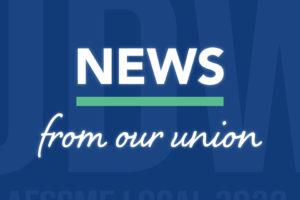We are Caregiver Strong: UDW members gather for 16th Constitutional Convention
UDW members elected by their peers to be delegates gathered in San Diego on June 7-9 for our 16th Constitutional

UDW members elected by their peers to be delegates gathered in San Diego on June 7-9 for our 16th Constitutional
Earlier this year UDW and working people across the country stood up and successfully stopped multiple health care repeal bills.
For Immediate Release June 22, 2017 Contact: Dan Arel at 619-814-3337 Health care repeal would cut California’s home care program

Howard Bedlin, NCOA, May 23 Straight Talk for Seniors®: 10 Ways the Administration’s Budget Would Impact Senior Programs The White

Andrew Joseph, Stat News, February 21 FENTON, Mo. — When Kim and Rich Rankin decided to adopt, they figured they
Frequently Asked Questions about ACA and Medicaid We’ve all heard a lot of talk about repealing the Affordable Care Act
With a new president in office and a new administration at work, changes are coming that will affect IHSS providers,
Election Day 2016 has come and gone, a new president is in the White House, and the U.S. Congress is
On Saturday, January 21st, millions of women, men, and children in hundreds of cities around the world stood together in
UDW caregivers started 2016 off with a bang. In fact, we made history. Overtime pay On February 1st, for the
Fight for Our Health Coalition FOR IMMEDIATE RELEASE December 20, 2016 CONTACT: Mike Roth, 916.444.7170; Maria Elena Jauregui, 818.355.5291
Call 1-866-584-5792, and tell your Congressional Representative to vote to protect the Affordable Care Act and Medicaid President-elect Trump and
A new president means a new administration and new policies. And new policies or changes to existing ones can have